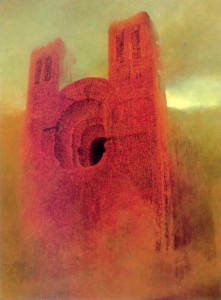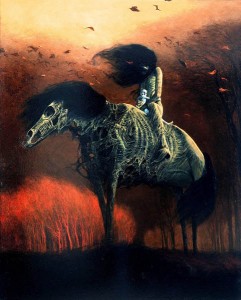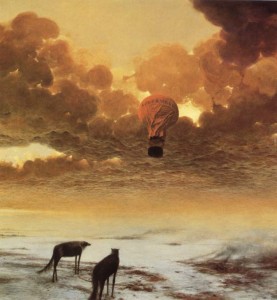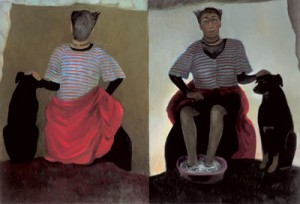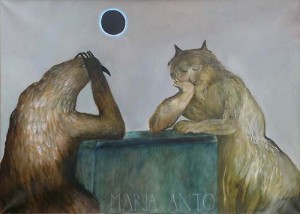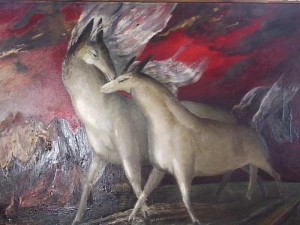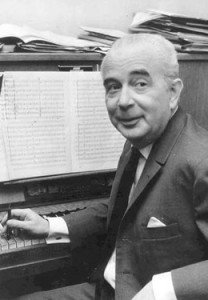I have friends abroad and I just thought why not to write from time to time for them. Sure, I will write sometimes what I am doing, but the more important for me is to tell more about Poland and its culture. So why not to start?
On 29th Sept. 2013
Lech Wałęsa is for sure the best known Polish name everywhere. Today it is 70th birthday of president Lech Wałęsa, Nobel-peace laureate (1983), of a man who leading a giant Solidarity movement won a freedom for Poland and the Eastern Europe. Just few days ago there was a Polish premiere of Andrzej Wajda’s new movie “Wałęsa. A Man of Hope” with title role of outstanding Polish actor Robert Więckiewicz (well known abroad also for main role in Agnieszka Holland’s Oscar nominated “In Darkness”, where he played Leopold Socha, Lvov’s sewer worker who saved Jewsh during the time of the second World war). The World premiere of Wajda’s movie was at the Venice Film Festival this year, and Lech Wałęsa was a special guest. The film is a Polish candidate to Oscar nominations (and we have interesting competition as Agnieszka Holland’s “Burning Bush” about Jan Palach, other film on a European way to freedom is a Czech candidate to Oscar nominantion).
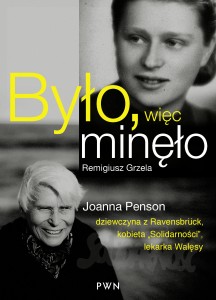 Just in two days, on 1st October, I have in Gdansk, in the Solidarity home, promotion of my new book – what I write now in English asked by my foreign friends – “Było, więc minęło. Joanna Penson – dziewczyna z Ravensbruck, kobieta Solidarności, lekarka Wałęsy” (“It was, so it’s been. Joanna Penson – a girl from Ravensbruck, a woman of Solidarity, a doctor of Wałęsa”, by PWN Publishing House). I think I had never met such extremely fascinating person, biography, story as prof. Joanna Muszkowska-Penson, well known nephrologist, a wife of prof. Jakub Penson, a doctor from a Warsaw Ghetto, after the war an outstanding nephrologist, who (long before the British scientists) described the kidney in crash-syndrome.
Just in two days, on 1st October, I have in Gdansk, in the Solidarity home, promotion of my new book – what I write now in English asked by my foreign friends – “Było, więc minęło. Joanna Penson – dziewczyna z Ravensbruck, kobieta Solidarności, lekarka Wałęsy” (“It was, so it’s been. Joanna Penson – a girl from Ravensbruck, a woman of Solidarity, a doctor of Wałęsa”, by PWN Publishing House). I think I had never met such extremely fascinating person, biography, story as prof. Joanna Muszkowska-Penson, well known nephrologist, a wife of prof. Jakub Penson, a doctor from a Warsaw Ghetto, after the war an outstanding nephrologist, who (long before the British scientists) described the kidney in crash-syndrome.
Just a year ago I came to Gdansk (landing at Lech Wałęsa Airport) to interview Wałęsa (it opens our book) in his office in so called “Green Gate” at Old Town, close Motława river. Prof. Joanna Penson who now works in his office arranging interviews, participating official and private meetings of the former president, was there. She introduced me to Walesa, was recording our meeting and helped me a lot to get more time than it was planned. After the interview we left Walesa’s office and started to talk. Prof. Penson did not tell me, of course, her life story, but my intuition told me that she has a lot to tell. The same day I sent her an e-mail that I am interested to write a book on her. But prof. Penson was not interested in. It took some time till she agreed. I came to Gdansk for two months, we talked, but prof. Penson wanted me to come back to Warsaw, as she is convinced her life is not to describe. I had a different opinion.
Prof. Joanna Penson was born in Warsaw in 1921. Her grandfather Marek Badior was a reach banker. Her mother met Jan Muszkowski, a manager of The Krasinskis Family Library in Warsaw, a well known librarian and they got married, against the Badior’s concent (Muszkowski as a librarian was not a wealthy man). When the second World war started Joanna with her friends joined the conspiracy and very soon she was arrested by Gestapo and sent to a in-famouse prison Pawiak from where she was taken to women’s concentration camp in Ravensbruck, where she was untill the camp was liberated in 1945. She came on foot to Lodz, Poland, where her parents lived. Just after the war she started to study medicine there (together with Marek Edelman, former Warsaw Ghetto Uprising leader and his wife Alina Margolis). There she met her husband. They moved to Gdansk, where prof. Jakub Penson became rector of the Medicine Academy. He died in 1973. In 80-ies prof. Joanna Penson became a doctor for Gdansk shipyard and especially of Lech Wałęsa. But she was not only a doctor. She was translating his meetings with French guestes and politicians (in 1988 with president Francois Mitterrand). She had organized help for Solidarity (esepcially on its medical field, she cooperated with The Doctors Without Boundaries, for example with their leader Bernard Kouchner, who later was a minister of foreign affairs in France). As a well known professor she was arrested by communists for her oppositional activities. She works with Wałęsa till now. Every day she comes to his office, independently if he is in Poland or he travels abroad. She says that the only and the last matter she has to do is to “defend Wałęsa” as he is now highly criticized by some of the right-wing groups.
In our book prof. Joanna Penson says: “What I am to tell, is not an opinion of an interested in his role politician, but an opinion of a society representative, a citizen of Gdańsk, for whom the fight of “Solidarity” was a second in her life fight for independance. By my observations without Wałęsa that fight would not be successful. He fulfilled the task perfectly, and the lack of gratitude from some of the citizens in the next generation is incomprehensible. My goal is to get back justice for Wałęsa. Without that the history becomes false”.
In our book prof. Joanna Penson tells her life story as she tells the story of Lech Wałęsa.
On 17th Sept. 2013
It was end of the 1950-ies when Zofia Posmysz, a writer and a journalist of Polish Radio was sent to prepare a material on first flight (after the war) from Warsaw to Paris. It was the first time she was in France. She had just few hours so she went to the town. On Place de la Concorde she heard the voice she will never forget. The voice of the woman she had known so well. A voice of her SS overseer, Annelise Franz, from Auschwitz, where Posmysz was a prisoner. She was shocked. Is it her? She was almost sure it was “aufseherin Franz”. Finally she found the strenght to look. It was a young, blond lady with blue eyes. No, it was not the “aufseherin”. But since she came back to Poland she had this on her mind – what would be if it was her? How she would react? Finally she wrote a story called “The Passenger from cabin number 45” where she imagined a cruise and them both – on the sea – her and the overseer from Auschwitz. Soon adaptation of the story was broadcasted by Polish Radio and finally film-maker Andrzej Munk proposed to Posmysz to write a screenplay. He started the movie (with great roles of Aleksandra Śląska as the overseer and Anna Ciepielewska as Marta – the prisoner). But Munk died in the car accident and the film was not finished. Cooperators of Munk decided to show the unfinished movie in 1963 and the film became one of the most important works of the Polish cinema over. Generations educated on “The Passenger”. The text of Zofia Posmysz, it might be, was the most important for the post-war generation discussing the borders between good and evil. But it was not the end of the story. Russian composer Weinberg was so fascinated by the story that he composed an opera (with the libretto by Aleksander Miedwiediew). Weinberg invited Posmysz to Moscow and asked her many questions on Auschwitz. She said that it was not a talk, he just asked and looked not at her, but somewhere further. She understood. His parents were killed in the concentration camp in Trawniki. It can be that’s why he decided to compose the opera. But it was a communism and a Soviet Russia and the opera was forbidden. Years after the opera was discovered by David Poutney. He directed “The Passenger” for Bregenz Festival in 2010. The opera received great reviews and is in production ao in Houston and in Tel-Aviv.
Zofia Posmysz last Sunday celebrated her 90th birthday on the concert prepared as a gift for her by Great Theatre – National Opera in Warsaw. She told the story of the Quartet of “Rigoletto”. She heard it first time sung by four female prisoners in Auschwitz. She was sure it was written for women. After the war she discovered that it was written for two pairs. She said there is no other Quartet what could give her bigger emotions that this one in Auschwitz. Artists from Great Theatre – National Opera sung the Quartet for Zofia Posmysz. It was a very touching moment.
When I interview Zofia Posmysz for my book “Wolne” (“Free” – the word has a feminine form and plural number in the Polish title) she said: “I live. It is a great topic”.
On 14th Sept. 2013
What is more universal than music and painting? I wrote about music yesterday, so today about two painters, seemingly different, but really different? I love their art for their imagination which does not know the borders.
Zdzisław Beksiński (1929-2005) is well known in Poland and is also known abroad. He was born in Sanok (today his museum is there), he was quite autistic, introvertic person living here, in Warsaw, in a high block-house (one of the block-houses built in communist time in Poland or Eastern Germany, as far as I know also on Zanzibar) in a district called Ursynow. His son, a radio journalist and a great translator Tomasz (for example he translated the dialogs of “Monty Python” into Polish for the TV) made a suicide in 1999. After the death of a wife of Beksinski, the painter began even further from the world, just spending days in his flat, not meeting too many people and occasionally visiting fast food bars, which he was a great fan of. He was more and more afraid of people. He had installed security alarm, security doors, bars on the corridor. Just one family which he supported and which he helped financially was visiting him to take care of the flat and small reparations. From this side came what he was painting for years. A son from this family who he had known very well, killed Beksinski in this safe and a secure place.
I made my first important interview in my life with Zdzisław Beksinski, years ago, when I was a student of journalism. I published the interview in my book “Hotel Europa”. I want to quote just few sentences:
Death is in your paintings. Some people say, that you have an obsession of death. Is it true?
And you are not afraid of death?
Not yet…
What does it mean? It can come every moment. When I was young, I was not afraid of death in the point I am afraid of it today: in the point of pain, lack of breathing, excrete under yourself, suffocation. But I was afraid of not existing and I felt a solitude of death. And it was a basic problem which I never solved.
The other painter I wanted to write about is Maria Anto (1936-2007). If I could find her twin soul, somewhere in the world, I would mention Frida Kahlo. She was a daughter of Nella Egiersdorff, one of the first female student of philosophy of Warsaw University (1920-22).
Maria Anto is still a mistery for me. From time to time I talk to her daughter, well known visual artist Zuzanna Janin about writing a book on Anto, as I would like to understand how the surreal stile came to this Poland-born artist. As I wrote in a way she is not so different to Beksinski – if we think about the imagination and their consistent creating of their own world, not only the style. But on the other hand Anto is not so monothematic, more vibrant, for me much more mysterious. Her painting was much more emotional, while Beskinski was provoking (even in our interview) that he paints more cd covers which – as he said – are very easy to paint.
Anto spent her childhood in Warsaw occupied by nazis. She was saved on the road to German concentration camp. When you think about Benigni’s movie “Life is Beautiful” and the small boy fed with the imagination, we can imagine Anto’s incarnation of that boy. It can be that her painting started just there. I remember when I was invited to the house of Maria Anto in Warsaw and was so surprised seeing there her paintings that I had not known before, as those with huge cars motive. I love her self-portraits as well as her tarot cards. Maria Anto was involved in Solidarity. She had never lost her independence.
Other paintings for sure you will find on Internet.
On 13th Sept. 2013
A friend of mine, Anne Miller has asked yesterday about artists who should be known abroad but are not or are not well known outside my country. The first name I had in mind was Jerzy Wasowski (1913-1984), Polish Leonard Bernstein, a composer and co-creator of the popular TV programme in the time of the communist Poland “Kabaret Starszych Panów” (The Cabaret of the Older Men). The older men were him and Jeremi Przybora, a poet and a song-writer. It is easier to understand the popularity of the Cabaret if you imagine that you live in a communist Poland, outside the iron curtain, with censorship, in a grey, homogeneous country, with workers not intellectuals. – Imagine the “1984” by Orwell. In this difficult time Jerzy Wasowski and Jeremi Przybora create a cabaret presenting intellectuals, aristocracy, cabaret speaking the intellectual language (not the uniformed communist “nowomowa” – “newspeak”). The world presented in the Cabaret of the Older Men was a pre-war chic. Jerzy Wasowski was composing music and Jeremi Przybora was the texts’ writer. The greates artists played in this TV cabaret, among them Barbara Krafftowna, the actress who years after performed two my plays. Watch this incredible duo of Barbara Krafftowna and Bohdan Lazuka singing “Przeklnij mnie” (Curse me): I will curse you if you ever leave me… – The two old men in the video are Jeremi Przybora (the thinner one) and Jerzy Wasowski:
But what is more important Wasowski composed standards, which – if known – would be sung by Sinatra and others. Wasowski had a great talent, but lived here, outside the iron curtain. But am sure one day his songs will be discovered. Just few, which I like.
Dobranoc – Good night – It\’s time for a dream.
Dla ciebie jestem sobą – For you I am myself
Bo we mnie jest seks – \’Cause sex is in me
The last three songs are intepreted by a great actress, sex bomba of these years, Kalina Jędrusik.

